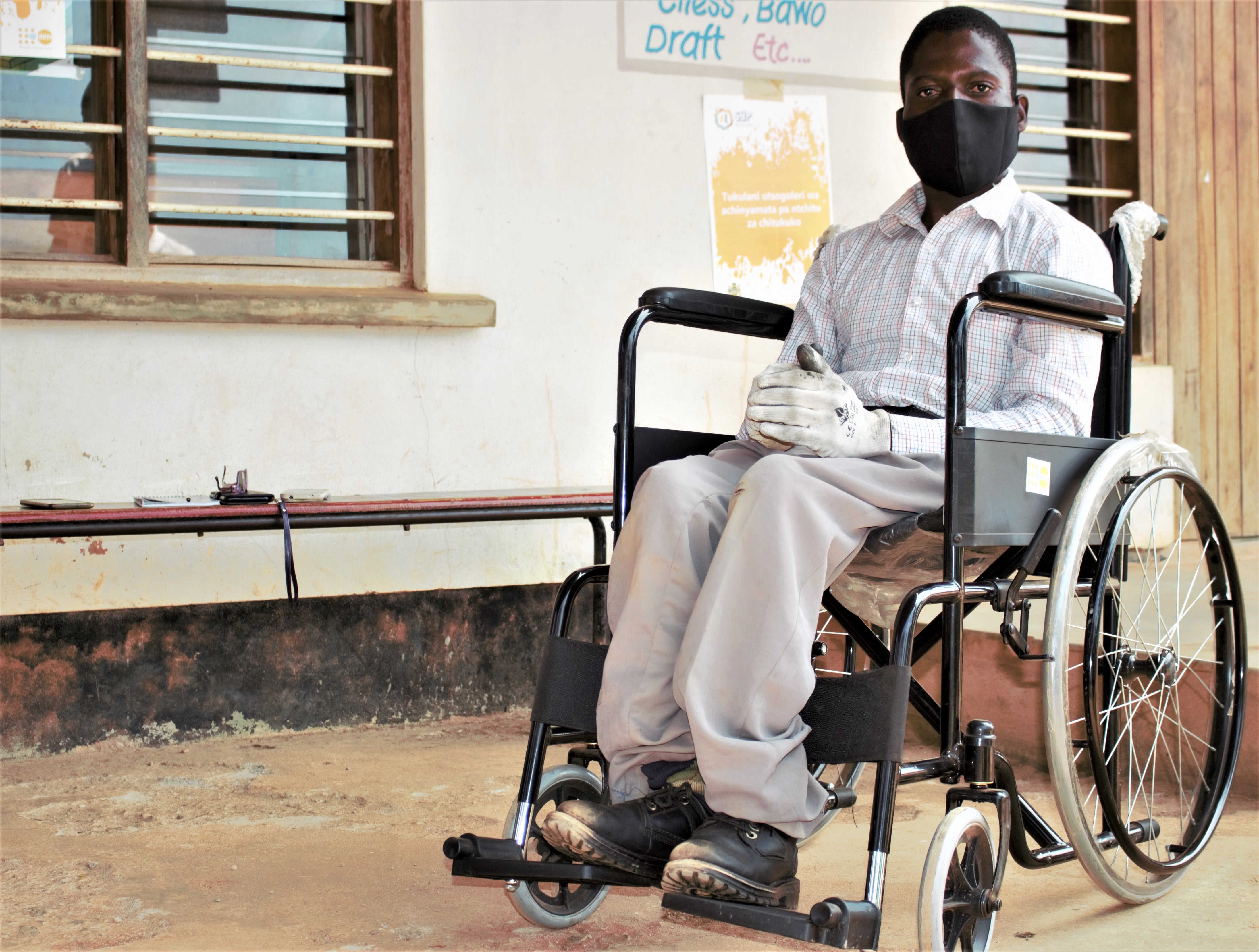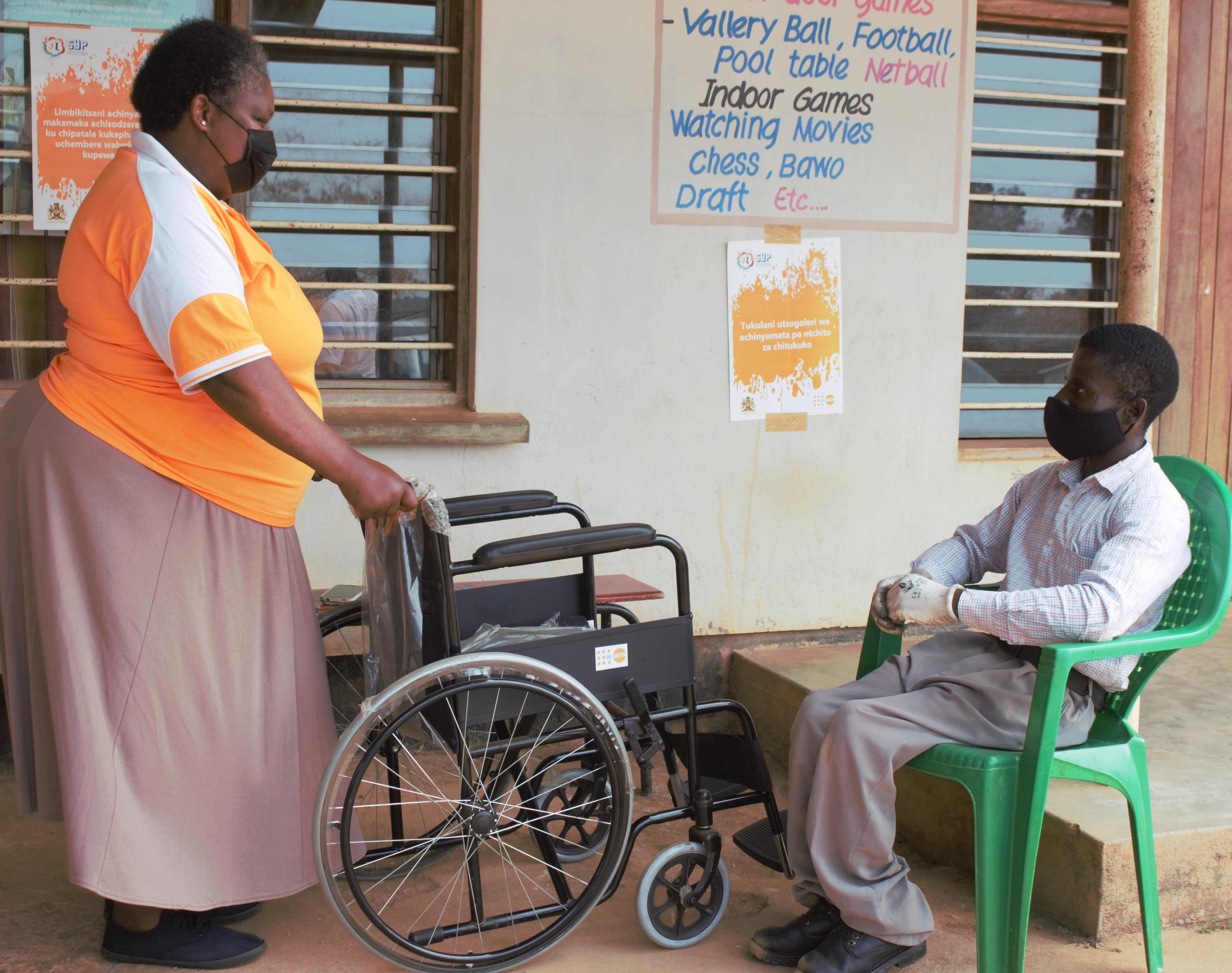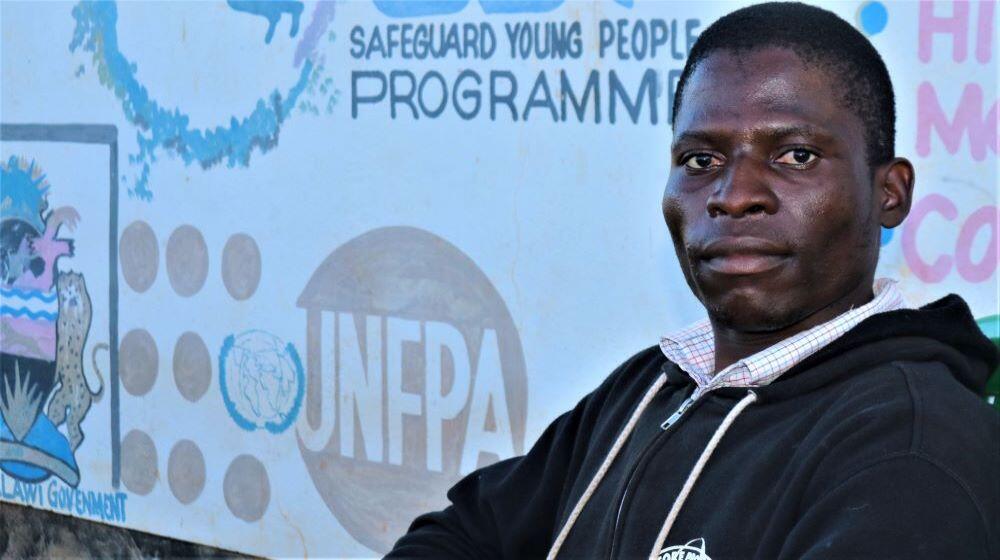Despite having born with physical disabilities, which makes it difficult for him to walk, Stephano Mkeka is regarded as a role model in his community. Stephano, who is currently studying for a diploma in Information and Communication Technology in Lilongwe, offer holiday classes, for free, to secondary students in his village. He also uses this platform to engage the students on sexual reproductive health and rights (SRHR) and to encourage them to actively take part in development issues in society. His passion is to see young people, especially persons with disabilities, achieve their dreams.
Stigma and discrimination against persons with disabilities
“I grew up being discriminated because I was different from other kids,” says 27-year-old Stephano who hails from Mpamba, Traditional Authority Timbiri in Nkhatabay district. “I yearned to play and enjoy life like any other kid but the stigma and discrimination left me feeling lonely.”

The memories of his childhood have given Stephano the drive to fight for a better and inclusive society for all. He says, although government and stakeholders are doing a good job in ensuring that all people enjoy their rights, the socio-economic needs of persons with disabilities are still vast.
According to the 2018 Population and Housing Census, there are 1,734,250 persons with disabilities in Malawi, representing about 11.6 percent of the total population aged above 5 years. Of the total population of persons with disabilities, 134,636 are persons with albinism.
“Persons with disability contribute a significant number in the population but are still facing challenges to access basic services,” he says. “Personally, when I was growing up, I never had access to basic services such as reproductive health. Most of the facilities, which offered such services were far from my village, and couldn’t access them because I had no mobility.”
Inclusive SRHR services for youth
However, over the years, things have been changing for the better in Nkhata bay, says Stephano. Some services such as sexual reproductive health and rights, are now offered within the communities.
In Nkhata bay, UNFPA with support from the Swiss Agency for Development and Cooperation (SDC) helped set up a Youth Friendly Health Service Centre at Nkhata bay District hospital under the Safeguard Young People Programme.
The programme seeks to empower adolescents and young people from specific groups to receive the skills and capabilities to make informed choices about their sexual and reproductive health and rights, and well-being.
And Stephano has been a member of the Youth Friendly Health Service Centre from the first day it was opened.
“The youth corner is the best thing that has ever happened to me,” says Stephano, who is now a youth leader under the Nkhata Bay Youth Network. “Since I started attending sessions at the youth corner, I have established a sense of courage and can now ably talk about the issue of disability.
“And it’s not just this, I’m now very much informed about my sexual and reproductive rights, and other diseases that affects the youth such as sexually transmitted infections.”
To help the young people make informed decisions, the Youth Friendly Health Service Centre conduct open days’ sessions, where it engage in one-on-one discussions on sexual reproductive health and rights, gender based violence, family planning and ending child marriages.
As a result, some youth leaders have withdrawn 206 girls from child marriages, some of whom have gone back to school.
Hope for a better and inclusive future
Recently, UNFPA donated a wheel chair to Stephano. Before the donation, Stephano used a tricycle to move from one place to another. Since the tricycle was old, Stephano says this meant he couldn’t reach out to some of the youth who were equally in need of information on sexual reproductive health.

“I’m so happy to have this wheelchair,” says Stephano. “As a youth leader I move a lot but I lacked a good wheelchair. Now that I have one, my work will be much easier.”
Recently, UNFPA supported the launch of a global study on Young Persons with Disabilities. The study underscores the right to comprehensive sexuality education (CSE) for young persons with disabilities on an equal basis with others.
“Through the Safeguarding Young People programme, we have managed to build the capacity of young people with disabilities so that they recognize themselves as sexual beings, claim their independence, and their rights,” says Rose Nkhonje, Programme Analyst- Youth and Adolescents for UNFPA. “We have also supported the development of related content in the CSE curriculum to ensure that the approach is inclusive.”
By Joseph Scott and Sanghmitra Duggal, UNFPA Malawi


